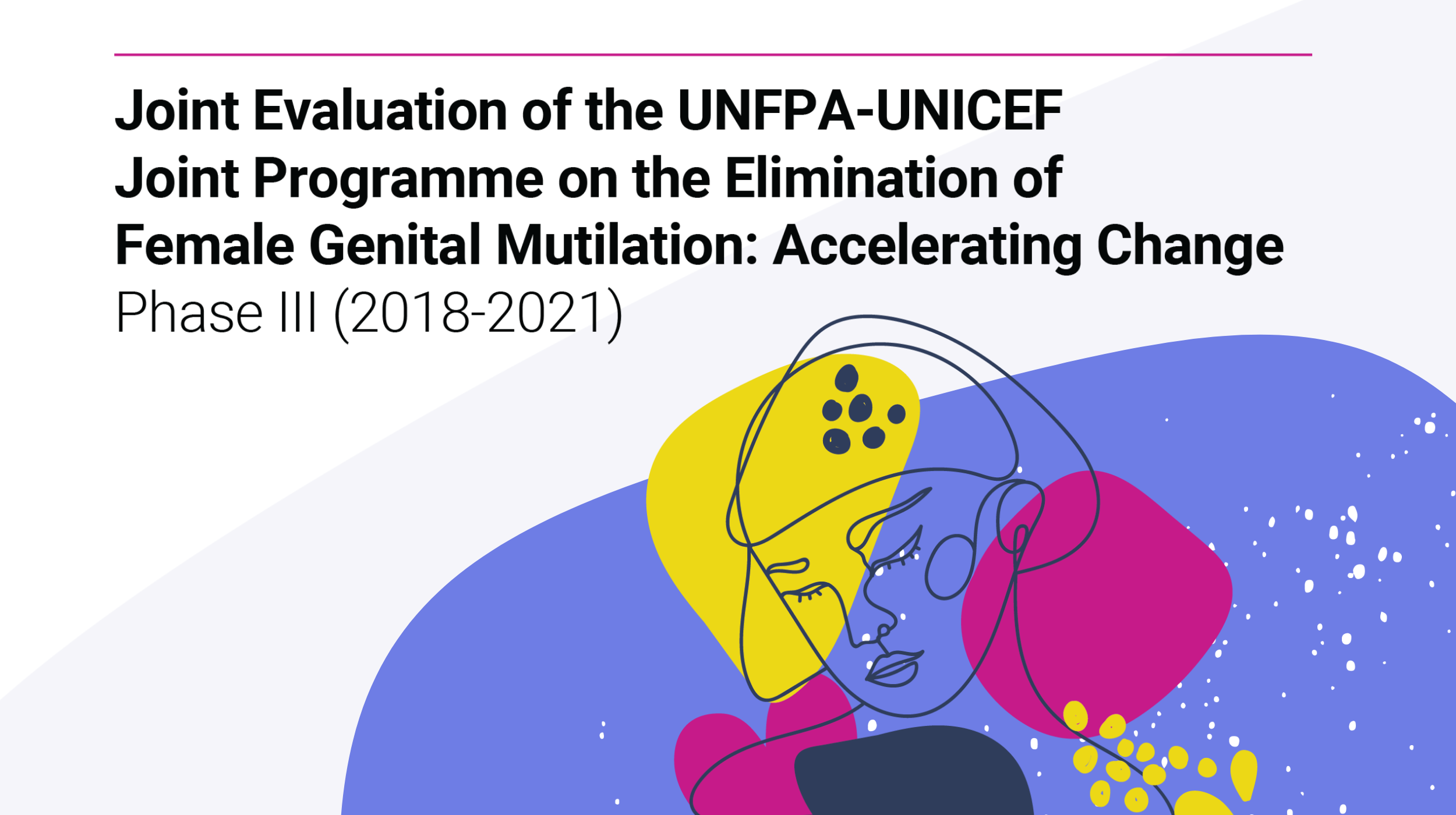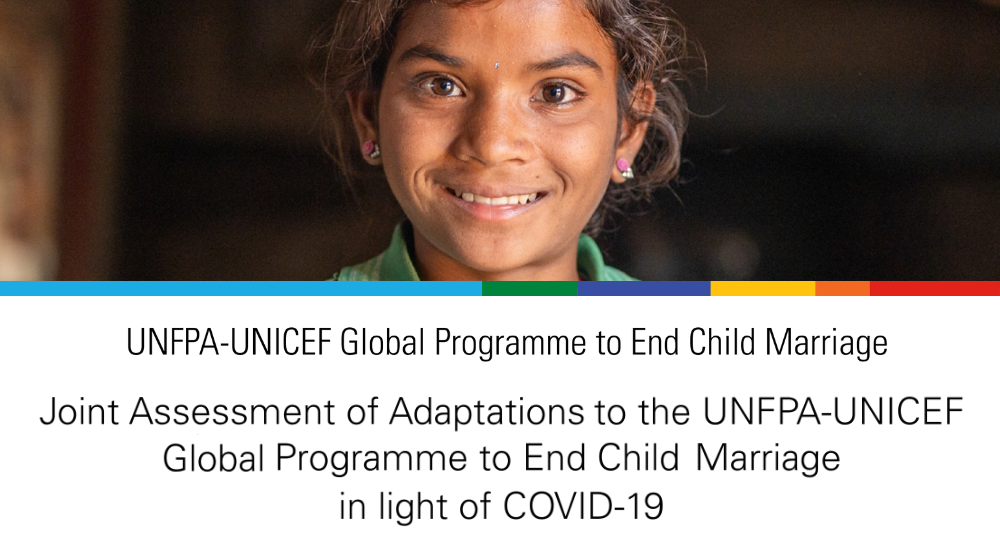News
For gender-based violence survivors in Palestine, a little assistance goes a long way
- 18 January 2022
News
News
Publication
Number of pages: 74
Publication date: 01 Dec 2021
Author: UNFPA
Publisher: UNFPA
News
News

The joint evaluation, conducted by the Evaluation Offices of UNFPA (lead agency) and UNICEF, assesses the programme contributions to outputs and outcomes during Phase III of the Joint Programme on the Elimination of Female Genital Mutilation (2018-2021). The evaluation provides evidence and lessons to inform the design of the Joint Programme post-Phase III to accelerate towards the Sustainable Development Goal target to end female genital mutilation (FGM) by 2030.
The evaluation finds that the Joint Programme continues to be a strategic and relevant response to the global issue of ending FGM. The Joint Programme has adapted effectively to COVID-19. The agility with which the programme has responded provides lessons for adapting to and understanding FGM within humanitarian settings. Yet, FGM receives insufficient consideration in humanitarian systems. The Joint Programme design is gender responsive, with a clear aspiration to move towards a gender-transformative approach, however, greater clarity is required to translate this approach to the country level.
Data collection methods

Among the several recommendations, the evaluation recommends the Joint Programme prioritize its global policy and advocacy work and should strategically strengthen the implementation of accountability systems. The Joint Programme should also advocate for fully funded national legal and policy frameworks, including addressing complex situations such as medicalization and cross-border FGM. A humanitarian approach should also be integrated within the post-Phase III Joint Programme design.
These lessons and evidence may also accelerate the implementation of the UNFPA strategic plan, 2022-2025, focused on ending gender-based violence and harmful practices against all women and girls, especially those that are furthest behind.
Further reads

The UNFPA-UNICEF Global Programme to End Child Marriage (2016-2030) contributes to Sustainable Development Goal 5.3, which aims to eliminate all harmful practices, including child marriage. The COVID-19 pandemic hit at the very beginning of Phase II (2020-2023) of the Global Programme and profoundly affected the everyday lives of girls. It is estimated that by 2030 there may be an additional 10 million child brides due to pandemic induced poverty and economic insecurity, interruptions in prevention and protection services and school closures.
To further refine the Global Programme’s ability to deliver in changing contexts, the Evaluation Offices of UNFPA and UNICEF conducted a joint assessment of the Global Programme adaptations to the COVID-19 crisis in 2021.
The results of the assessment indicate that the Global Programme should retain the focus and efforts to reach the most vulnerable and marginalized adolescents, ensuring their access to education, health and social welfare services. It is also critical to overcome the drivers of poverty by leveraging existing social protection schemes. Evidence must be used to inform programming, as well as to advocate with governments to keep child marriage prevention and response on the national agendas. In addition, continue to develop legal and operational frameworks that can accelerate the end of child marriage.
These lessons will accelerate the pace of the Global Programme, and in turn support the realization of the UNFPA strategic plan, 2022-2025, towards the delivery of the Sustainable Development Goals.
Publication
Number of pages: 35
Publication date: 01 Dec 2020
Publisher: UNFPA
Resources
Resource date: Nov 2021
News